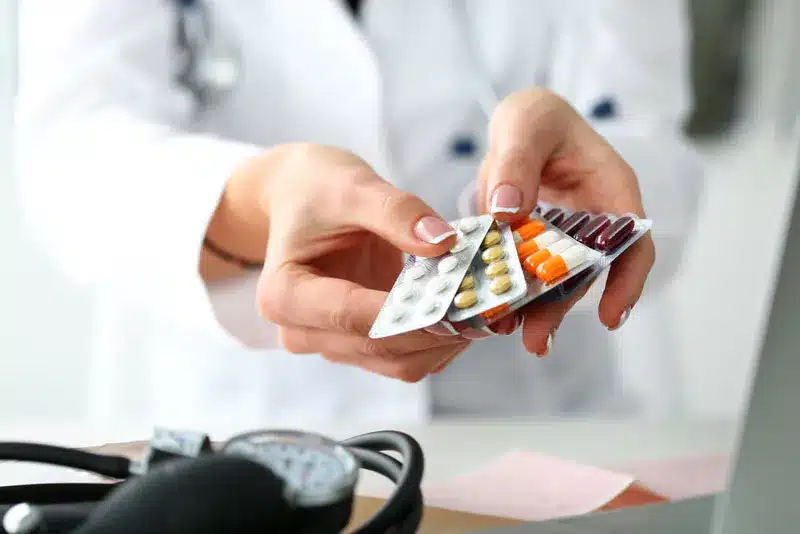Erectile dysfunction is a common condition affecting men over 40. Approximately 10% of men aged 40-70 experience complete erectile dysfunction – the inability to maintain an erection sufficient for sexual activity. Additionally, about 35% of men in this age group report occasional erectile difficulties. While less common, 5-10% of men under 40 also experience this condition.
Obesity Linked to ED
In the United States, diabetes and obesity contribute to about 8 million cases of erectile dysfunction. Research shows a direct relationship between body mass index (BMI) and ED risk – as BMI increases, so does the likelihood of developing erectile problems.
Understanding BMI
Body Mass Index (BMI) calculates a person’s weight in kilograms divided by their height in meters squared. While BMI doesn’t directly measure body fat or account for factors like age, sex, ethnicity, or muscle mass, it generally correlates with body fat percentage. Higher BMI levels are associated with increased ED risk.
Weight Loss May Improve Erectile Function
In one study, 110 obese men (ages 33-55) participated in a two-year lifestyle program involving diet and exercise. Participants lost an average of 33 pounds, with about one-third reporting significant improvement in their ability to achieve erections.

Obesity as a Major ED Risk Factor
About 80% of men with erectile dysfunction have a BMI over 25. Those with BMI exceeding 28.7 face a 30% higher ED risk. For reference, a 6’0″ man would weigh about 210 pounds at this BMI. Beyond ED, excess weight increases risks for heart disease, high blood pressure, and type 2 diabetes in both men and women.
Additional Conditions Increasing ED Risk
Men with high blood pressure, diabetes, or pre-diabetes face elevated ED risk. Heavy alcohol consumption and certain blood pressure medications also increase susceptibility.
How Obesity Contributes to ED
Excess weight impairs blood circulation. Similar to how alcohol and some heart medications reduce blood flow to the penis by lowering blood pressure, obesity narrows blood vessels, restricting the blood flow needed for erections.
Obesity’s Impact on Blood Vessels
Even healthy young adults gaining just 9 pounds of abdominal fat can develop endothelial dysfunction – impaired function of cells lining blood vessels that regulate vessel dilation. This condition increases risks for coronary artery disease and other cardiovascular problems.
Studies show that abdominal weight gain (visceral fat) causes endothelial dysfunction, impairing blood flow regulation even with normal blood pressure. Fortunately, weight loss restored normal blood flow in study participants.

Can ED Improve Without Medication?
A five-year study of 810 men with various ED forms found that 29% reversed their condition naturally. Even men using ED medications experienced better treatment outcomes when addressing lifestyle factors.
Dr. Sean Martin from the University of Adelaide's Freemasons Foundation Centre for Men's Health notes: "ED medications work significantly better when combined with lifestyle changes."
Weight Management Medications
Orlistat
For men with weight-related ED, Orlistat (sold as Alli or Xenical) may help. This medication blocks fat absorption in the digestive system, potentially accelerating weight loss compared to diet and exercise alone.
Rybelsus
Rybelsus, containing semaglutide, is primarily for type 2 diabetes but also aids weight loss. As a GLP-1 receptor agonist, it reduces appetite and increases satiety, potentially promoting weight loss when combined with diet and exercise. Always consult a healthcare provider before use.
ED Treatment Options
Several effective medications exist for erectile dysfunction. Overweight men needing immediate assistance can consider sildenafil, Cialis (Tadalafil), or Levitra while working on weight loss. Always consult a healthcare professional before starting any medication.
Conclusion
For overweight men with ED, weight loss may reverse the condition or enhance ED medication effectiveness. Consult your doctor to develop a comprehensive plan addressing both weight management and erectile function.
Sources:
https://www.healthline.com/health/erectile-dysfunction/weight-loss-and-ed
https://rexmd.com/learn/can-weight-loss-treat-erectile-dysfunction
https://www.webmd.com/men/weight-erectile-dysfunction
https://www.verywellhealth.com/obesity-and-erectile-dysfunction-5202283







